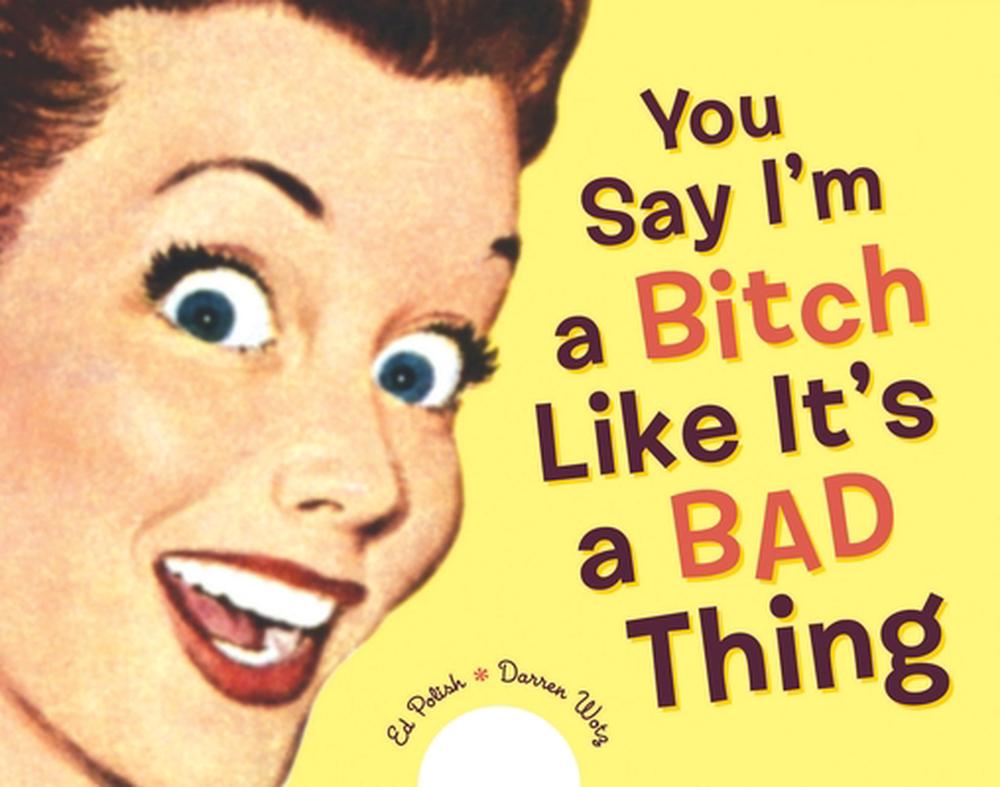Your Bitch Too Bad: A Candid Dive Into Understanding And Tackling Toxicity
Hey there, folks. Let’s cut straight to the chase, shall we? If you’ve landed on this page, chances are you’ve either heard the phrase “your bitch too bad” being thrown around or you’re trying to figure out what it means and how it fits into today’s complex social dynamics. Well, buckle up because we’re about to deep-dive into this topic with no holds barred. This ain’t just some fluffy article; it’s a straight-up, no-nonsense exploration of a phrase that’s gaining traction in pop culture and online spaces. So, if you’re ready to peel back the layers, let’s get started.
You might be wondering, what exactly does “your bitch too bad” mean? At first glance, it seems like a dismissive or even offensive comment. But trust me, there’s more to it than meets the eye. This phrase has evolved from being a mere insult to becoming a cultural commentary on toxic behaviors, both online and offline. It’s not just about calling someone out; it’s about recognizing and addressing patterns that can harm relationships, mental health, and even self-esteem. And yeah, we’re gonna talk about all of that.
Now, before we go any further, let’s establish something important: this article isn’t here to judge or shame anyone. Instead, it’s designed to empower you with knowledge and tools to navigate the tricky waters of human interaction. Whether you’re dealing with someone who’s “too bad” or reflecting on your own behavior, this guide will help you understand the root causes and offer practical solutions. So, let’s dive in and see where this journey takes us.
Read also:Face And Body Spa Brentwood The Ultimate Relaxation Destination Youve Been Dreaming Of
What Exactly Does “Your Bitch Too Bad” Mean?
In the simplest terms, “your bitch too bad” is a phrase often used to describe someone who exhibits overly negative, controlling, or toxic behavior. It’s not just about being mean or rude; it’s about consistently displaying patterns that make others feel small, disrespected, or undervalued. Think of it as a warning sign that someone’s energy is draining or harmful. But hey, don’t take my word for it—let’s break it down further.
For starters, the word “bitch” itself has undergone a massive transformation over the years. Once considered a derogatory term, it’s now often reclaimed by individuals as a badge of strength and resilience. However, when paired with “too bad,” it takes on a different tone altogether. It’s like saying, “Hey, you’re taking things too far,” or “Your behavior is crossing boundaries.” And let’s face it, we’ve all encountered people who fit that description, right?
Breaking Down the Phrase
Let’s dissect this phrase further to really get a grip on what it entails:
- Your Bitch: Refers to someone who is acting in a way that’s perceived as overly aggressive, controlling, or manipulative. It’s not about gender—it’s about behavior.
- Too Bad: Highlights the extreme nature of the behavior. It’s not just mildly annoying; it’s over the top and damaging.
When combined, these words create a powerful statement that calls out toxic patterns and encourages reflection. It’s like a wake-up call for both the person exhibiting the behavior and those around them.
Why Does This Phrase Matter?
Alright, so why should you care about “your bitch too bad” in the first place? Well, here’s the deal: toxic behavior affects everyone involved. Whether it’s in personal relationships, workplace dynamics, or even online interactions, unchecked negativity can have serious consequences. From decreased productivity to mental health issues, the ripple effects are real and far-reaching.
Moreover, understanding this phrase allows us to address these behaviors head-on instead of sweeping them under the rug. It’s about creating healthier environments where people feel respected, valued, and heard. And let’s be honest, who doesn’t want that?
Read also:The Oceanview Of Nahant A Breathtaking Journey Into Serenity
The Impact of Toxic Behavior
Here’s a quick rundown of how toxic behavior can impact different aspects of life:
- Mental Health: Constant exposure to negativity can lead to anxiety, depression, and low self-esteem.
- Relationships: Toxic patterns can strain friendships, romantic partnerships, and family ties.
- Workplace: A negative work environment can reduce morale, increase turnover rates, and hinder collaboration.
See what I mean? It’s not just about one person—it’s about the collective well-being of everyone involved.
Recognizing Toxic Behavior
So, how do you spot someone who’s “too bad”? It’s not always obvious, but there are certain red flags you can look out for. Here are some common signs:
1. Constant Criticism: Does this person always find fault in everything and everyone? If yes, that’s a major red flag.
2. Manipulative Tactics: Are they using guilt trips, emotional blackmail, or other underhanded methods to get their way? If so, it’s time to take notice.
3. Lack of Empathy: Do they show little to no concern for others’ feelings or perspectives? Empathy is key to healthy relationships.
Am I the Problem?
It’s also important to reflect on your own behavior. Ask yourself: am I contributing to the toxicity in any way? It’s not always easy to admit, but sometimes we need to take a step back and evaluate our actions. After all, growth starts with self-awareness.
Dealing with Toxic People
Alright, so you’ve identified someone who’s “too bad.” Now what? Here’s where the real work begins. Dealing with toxic people requires a combination of empathy, boundaries, and sometimes, a little tough love. Let’s break it down:
1. Set Boundaries: Clearly communicate what you will and won’t tolerate. This might mean limiting contact or even cutting ties altogether in extreme cases.
2. Practice Empathy: Remember, toxic behavior often stems from deeper issues like insecurity or past trauma. While this doesn’t excuse bad behavior, it can help you approach the situation with more understanding.
3. Seek Support: Don’t go it alone. Lean on friends, family, or even a therapist for guidance and encouragement.
When to Walk Away
Sometimes, despite your best efforts, the relationship just isn’t salvageable. And that’s okay. Walking away from a toxic situation is not a failure—it’s an act of self-preservation. Trust me, your mental and emotional health is worth it.
Creating a Positive Environment
Now that we’ve tackled the tough stuff, let’s shift gears and talk about building healthier, more positive environments. After all, prevention is always better than cure. Here are some tips to foster positivity:
1. Encourage Open Communication: Create spaces where people feel safe expressing their thoughts and feelings without fear of judgment.
2. Celebrate Strengths: Focus on what makes each person unique and valuable. Highlight their strengths and contributions.
3. Lead by Example: Be the change you want to see. Model the kind of behavior you’d like others to emulate.
The Power of Positivity
Positive environments don’t just happen—they’re created through intentional effort. When people feel supported and valued, they’re more likely to thrive both personally and professionally. It’s a win-win situation.
Real-Life Examples
Let’s bring this all together with some real-life examples. Imagine a workplace where one employee constantly undermines their colleagues. At first, it might seem like harmless teasing, but over time, it erodes trust and morale. By addressing the behavior early on and fostering a culture of respect, the team can transform from a group of individuals into a cohesive unit.
Or consider a friendship where one person consistently dominates the conversation and dismisses the other’s opinions. By setting boundaries and communicating openly, the friends can work towards a more balanced and fulfilling relationship.
Data and Statistics
According to a study by the American Psychological Association, workplace incivility has increased significantly in recent years, with nearly half of employees reporting they’ve experienced it firsthand. Similarly, research shows that toxic relationships are a leading cause of stress and anxiety in adults. These numbers highlight the urgent need for action and awareness.
Conclusion
So, there you have it—a comprehensive look at the phrase “your bitch too bad” and its implications. Whether you’re dealing with toxic behavior or reflecting on your own actions, the key takeaway is this: change is possible. By recognizing patterns, setting boundaries, and fostering positivity, we can create healthier, more fulfilling relationships and environments.
Now, here’s where you come in. Take a moment to reflect on what you’ve learned. Are there areas in your life where you can apply these principles? Share your thoughts in the comments below or reach out to me directly. Together, we can make a difference—one conversation at a time.
Table of Contents
- What Exactly Does “Your Bitch Too Bad” Mean?
- Why Does This Phrase Matter?
- Recognizing Toxic Behavior
- Dealing with Toxic People
- Creating a Positive Environment
- Real-Life Examples
- Data and Statistics
- Conclusion
And there you have it—a guide that’s not only informative but also actionable. Remember, the journey towards healthier relationships starts with small steps. So, what’s yours gonna be?
Article Recommendations


